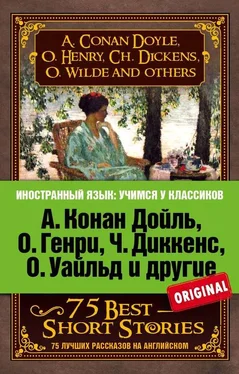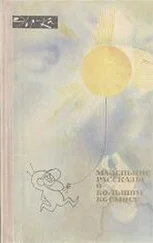guillotine– a beheading instrument invented in 1792 during the French Revolution
Greenwich Villager– resident of Greenwich Village, an exclusive residential area in Lower Manhattan in New York City; in the first half of the 20th century it became the place where intellectuals, writers, artists and bohemians used to meet.
anachronism– 1) smth. or smb. out of date; 2) mistake in chronological relation.
Baltimore– a city in north-central Maryland, US, founded in 1729
the Confederacy– 11 Southern states that seceded from the Union in 1860–1861 and formed the Confederate States of America; the secession caused the American Civil War of 1861–1865.
septuagenarian– a person from 70 to 79 years of age
Methuselah– the Old Testament patriarch; he was 969 years old, and was considered the longest-lived man.
Havana– a famous cigar
the Wandering Jew– a legendary character doomed to live until the end of the world in punishment for taunting Jesus Christ on his way to the Crucification
mantilla– a large veil or scarf worn to cover the hair and shoulders
San Juan Hill– the highest point of San Juan Ridge where one of the battles of the American-Spanish War took place in 1898
persona grata– a person who is acceptable
Y. W. C. A. – Young Women’s Christian Association
sans= without ( French )
gingham– a strong, plain-woven cotton fabric
Westmoreland– a historic county in northwestern England
Northumberland– a historic county on the North Sea in northeastern England, to the south of Scotland
Carlisle– a city and district in Cumberland in northwestern England, on the Scottish border; Cumberland is a historic county along the western coast of England.
the Cumberland Fells– a part of the Cumbrian Mountains
Newcastle– a city in the historic county of Northumberland; the new castle from which the town got its name was built in 1080.
gowk= a fool
maud– a grey Scottish plaid, tartan
bairn= a child ( Scottish )
bairnie= babe, kid ( Scottish )
Spectre(-)Child= a ghost of a child
Doncaster Races– the Saint Leger horse race is held annually in September in Doncaster, a town in the county of South Yorkshire in north-central England.
plainting– poet. weeping bitterly, sobbing, moaning
the Fourth of July– Independence Day, an annual national holiday in the United States; it commemorates the Declaration of Independence adopted on July 4, 1776.
delirium tremens– a mental disturbance with disorientation and hallucinations in cases of alcoholism
Wessex– one of the historical Anglo-Saxon kingdoms of medieval England
symbolist– a representative of symbolism, a literary and artistic movement of the late 19th and early 20th centuries; symbolists expressed their emotional experience through subtle symbolized language.
decadent– a representative of decadence, a period of decline in literature and art at the end of the 19th and the beginning of the 20th centuries
Elizabethan fashion– fashion and style of the time of Elizabeth I (1533–1603), Queen of England
Bond Street– a street in central London famous for its expensive shops
Ivel, Casterbridge– fictional cities in Dorset invented by Thomas Hardy (1840–1928)
General Wellesley– Arthur Wellesley, 1st duke of Wellington (1769–1852), the commander-in-chief of the British Army during the Napoleonic Wars and later prime minister of Great Britain
coroner– an official who is to inquire into any death that seems unnatural
felo-de-se= suicide
Waterloo and the fall of Napoleon– the Battle of Waterloo was the final defeat of Napoleon
Sabbath– a holy day of rest (Sunday for the Christians and Saturday for the Jews)
Parthian volley– a number of curses and oaths directed at smb. one by one
anathema– a curse and the forced expulsion of smb. from some communion (originally Christian)
the Sierras– Sierra Nevada, a major mountain range in the west of North America
Peleus– in Greek mythology, the king of the Myrmidons and the father of Achilles
Achilles– in Greek mythology, the son of the mortal man Peleus and a sea nymph, the bravest hero of the Trojan War
Homer(9th–8th century BC) – a great poet of ancient Greece, the author of the ‘Iliad’ and ‘Odyssey’
dyspnoea– acute shortness of breath
Lazarus– a biblical figure; when Lazaurus was dead for four days, he was raised by Jesus Christ from the dead.
Hogarthian– painted by William Hogarth (1697–1764), an English artist, best known for his engravings and paintings
Doxology– praise to God sung during masses in Catholic, Anglican, Lutheran and Protestant churches
tarred and feathered– punished (originally by putting tar on smb. and then covering with feathers)
reredos– in church, an ornamental screen covering the wall at the back of the altar
Braille– a writing system used for the blind and consisting of a code of 63 characters, invented in 1824 by Louis Braille (1809–1852), a French educator who was blind himself
Читать дальше
Конец ознакомительного отрывка
Купить книгу












